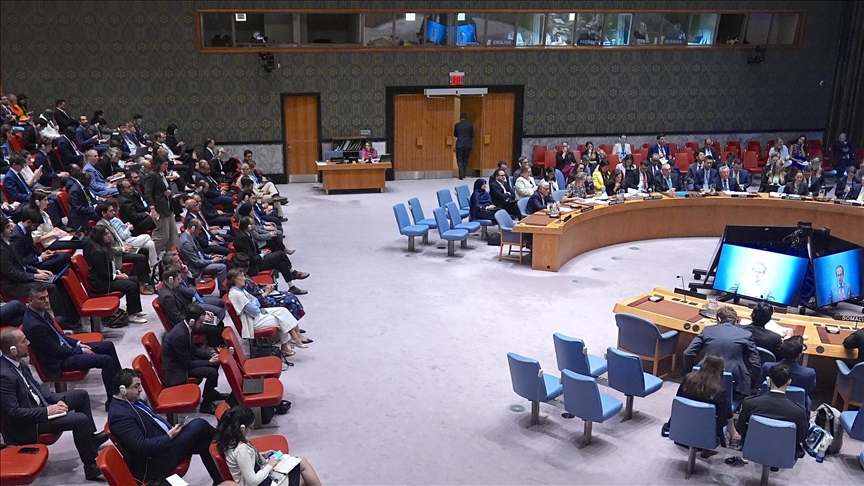Iran's UN envoy says ceasefire with Israel offers renewed opportunity for diplomacy
‘Diplomacy and dialogue are the only path to resolving the unnecessary crisis over Iran's peaceful program,' says Amir Saeid Iravani
 UN Security Council holds emergency meeting on Israel-Iran conflict
UN Security Council holds emergency meeting on Israel-Iran conflict
HAMILTON, Canada
Iran's UN envoy said Tuesday that a fragile ceasefire with Israel presents a renewed opportunity for diplomacy, asserting that Western efforts to force Tehran into submission have failed.
"We are now closer to diplomacy than ever before," said Amir Saeid Iravani during a UN Security Council meeting on non-proliferation following 12 days of deadly hostilities between Israel and Iran.
Arguing that the latest escalation proved the failure of efforts to intimidate Iran, he said "the long, large-scale war they thought could force Iran into a so-called 'unconditional surrender' and make it abandon its peaceful nuclear program through intimidation, threats and the use of force has failed more clearly than ever."
"This proves one simple truth more clearly than ever: diplomacy and dialogue are the only path to resolving the unnecessary crisis over Iran's peaceful program," he told the Council.
Iravani condemned the participation of Israel in the session, saying: "Legally and precedentially, Israel has no standing to take part in this meeting. This regime has no connection to the agenda of the meeting. No Resolution 2231 or JCPOA,” referring to United Nations Security Council Resolution 2231, a July 20, 2015 resolution endorsing the Joint Comprehensive Plan of Action on the nuclear program of Iran.
He further accused Israel of committing "criminal aggression," supported by Washington.
"With full US support, Israel has targeted Iran's peaceful nuclear facilities, civilians and civilian infrastructure," he said, adding that the attacks killed "hundreds of innocent people, including women, children, nuclear scientists, academics, athletes, students, aid workers and senior military officials."
Reaffirming Iran's commitment to non-proliferation, Iravani said that "Iran complies with the NPT (Nuclear Non-Proliferation Treaty) and has subjected its nuclear program to the most rigorous IAEA monitoring,” adding that Tehran "remains committed to diplomacy and peaceful dispute resolution."
- Russia, US clash over strikes on Iran's nuclear facilities
Russian envoy Vassily Nebenzia echoed Iran's objections to Israel's participation, saying: "We are a bit surprised at Israel's request to take part in our meeting, which is taking place under the agenda item 'Non-Proliferation.' We would like to believe that this decision hints at a potential accession of this country to the NPT, which the entire world would love to see."
He also condemned the strikes on Iran's nuclear infrastructure as "a direct and very dangerous challenge to the authority of the NPT," warning that such actions posed "a real threat of radiological consequences which could affect not only Iranians but the entire Middle East."
Nebenzia said the US and Israel had violated the UN Charter, Security Council resolutions including 487 and 2231, and the IAEA statute. He criticized the UK, France and Germany for supporting the attacks, calling their diplomatic claims "absolutely impossible to take seriously."
US envoy Dorothy Shea defended Washington's actions.
"On June 12, the IAEA Board of Governors found Iran in noncompliance for its many failures to uphold obligatory nuclear safeguards.
"The United States will not turn a blind eye to Iran's noncompliance and ongoing threat to regional stability," Shea said, adding that "President (Donald) Trump has clearly reiterated that it is time for Iran to make peace.”








